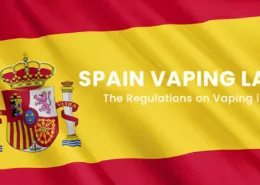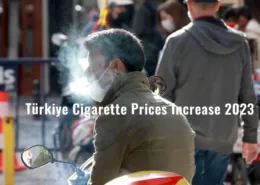Vietnam’s Ministry of Finance Proposes a Vape Tax
According to local Vietnamese media on May 14, the Ministry of Finance in Vietnam has recently submitted a draft report to the Ministry of Justice. This report, for the Special Consumption Tax Law (SCT), includes a proposal for a consumption tax on e-cigarettes.
The Ministry of Finance has noted an increase in new types of tobacco products on the Vietnamese market. This includes vaporized e-cigarettes, heat-not-burn products, and hookahs that come in full, partial, or no tobacco varieties. They’ve pointed out that e-cigarettes are increasingly popular, particularly among teenagers.
They’ve mentioned that currently, 71 countries impose a consumption tax on vaporized e-cigarettes. Among these, 23 use a fixed tax, 7 use a percentage-based tax, and the rest employ a mix of both at the same rate.
Generally speaking, these countries tax e-cigarettes at the same level as traditional cigarettes. As for heat-not-burn products, 61 countries tax them at the same rate as conventional cigarettes.
Meanwhile, the Ministry of Industry and Trade is currently preparing a draft decree to submit to the government. It outlines several provisions and measures regarding tobacco trade in Vietnam’s “Tobacco Harm Prevention and Control Act,” including pilot programs in Vietnam. In response, the Ministry of Finance has said, “If the Prime Minister decides to allow the project to be piloted, it will be necessary to establish new tax laws for tobacco.”
In related news, the Ministry of Finance has indicated that the specifics of laws and regulations for new types of tobacco will be studied and established as corresponding rules once the SCT law is passed in the National Assembly. In other words, the process of legislating a consumption tax on e-cigarettes in Vietnam is underway.
Current State of Vape Regulation in Vietnam
The Ministry of Health has long been against e-cigarettes, pushing for bans and frequently reaching out to the Vietnamese Ministry of Education and Training, Ministry of Industry and Trade, Ministry of Information and Communications, and the Ministry of Public Security. They’ve recommended strengthening the harmful effects of e-cigarettes and strictly investigating transportation, storage, promotion, and sales activities.
Here’s the catch: while there’s no outright ban on e-cigarettes in Vietnam, the only entity allowed to import them is the state-owned Vietnam National Tobacco Corporation (Vinataba), which dominates the local tobacco market.
Interestingly, the body responsible for tobacco-related regulation in Vietnam is the Vietnam Tobacco Control Fund (VNTCF). Managed by the Ministry of Health, it is funded by mandatory contributions from tobacco companies. This means that local tobacco businesses and the regulatory body have formed a force pushing for the legalization of e-cigarettes.
At the moment, the chances of Vietnam implementing a blanket ban on e-cigarettes seem rather slim.
Currently, Vietnam has a sizable e-cigarette market. According to local media reports, the number of e-cigarette users grew over 36 times from 2015 to 2020. Now, over 1.1 million people in Vietnam use e-cigarettes. For reference, Vietnam’s population in 2021 was 97.468 million, and there were as many as 15.4 million smokers.
On the other hand, due to the lack of a dominant brand, many companies have set their sights on the Vietnamese market.
For example, while some well-known brands like ELFBAR and RELX have gradually expanded, most of the famous brands distribute products for other markets. The larger share is held by smaller brands that are not yet well-known in the global market. This is somewhat similar to the market in Belarus.
All in all, the future direction of Vietnam’s new tobacco-related regulations remains uncertain.








